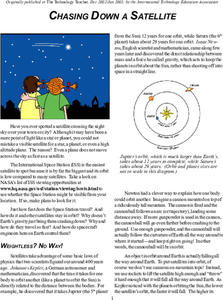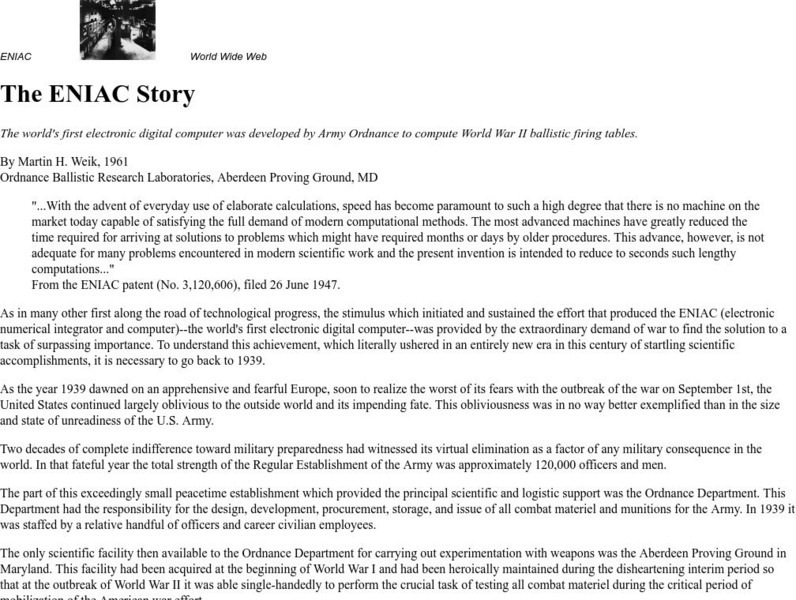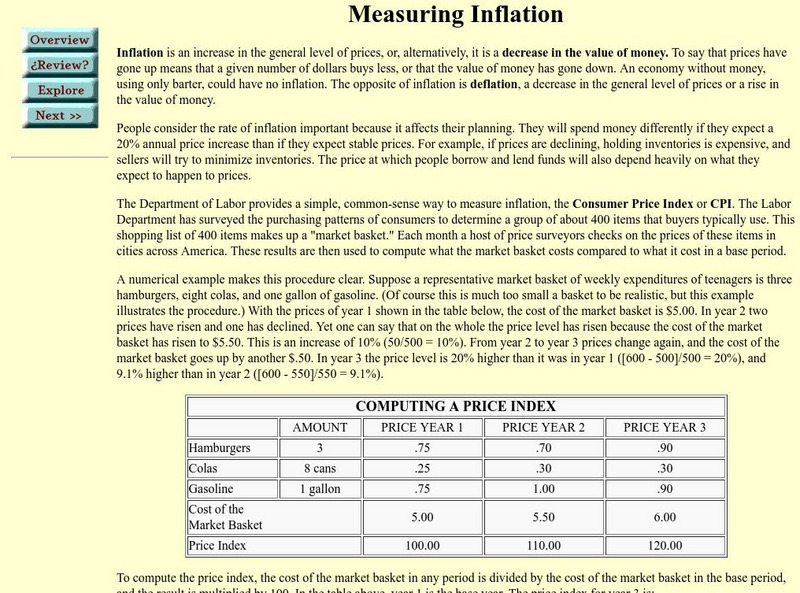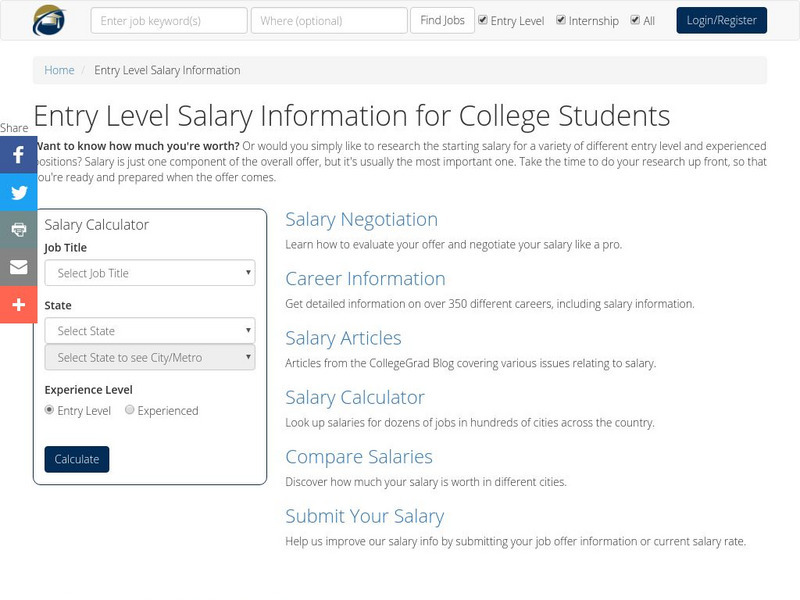NASA
Chasing Down a Satellite
Calculate the speed of the International Space Station. By reading the article, pupils learn about the concept of orbits. Scholars work through a formula to determine how fast the International Space Station is traveling to stay in...
College Board
Why We Use Theorem In Calculus
Young scholars read an article to explain the reasoning behind theorems. In this calculus lesson, students understand the underlying principles of theorems and how it helps them make sense of the problems. They know why they do what they...
Other
Vintage Calculators: Web Museum
Learn about the history of calculators, from the 1960's to the present. Includes images.
Physics Aviary
Physics Aviary: Quick Circular Motion Calculations Challenge
This challenge is designed to help students move back and forth from different circular motion ideas. These ideas include frequency, rpm, period, angular speed, linear speed, total distance and total radians.
Bankrate
Bankrate: Sales Tax: Definition, How It Works, and How to Calculate It
Forty-five states and many local government impose sales taxes on most goods and some services. This article explains the difference between sales taxes and income taxes, and how sales taxes are levied.
History of Computing Science
History of Computing Science: Blaise Pascal
Blaise Pascal was a French mathematician, physicist, and religious philosopher. He built the first mechanical calculator. This lecture presents a short treatment of his life and his accomplishments.
History of Computing Science
History of Computing Science: A Primitive Calculator
The abacus is an ancient calculating tool. This lecture series presents a brief description of the abacus and its use.
History of Computing Science
History of Computing Science: The First Mechanical Calculator
The Pascaline was the first mechanical adding machine and was developed by Blaise Pascal. This lecture series presents a brief description of the history of the machine and how it worked.
Other
U. S. Army Research Laboratory: The Eniac Story
This site provides a detailed history of ENIAC, the world's first digital computer developed by Army Ordnance to compute World War II ballistic firing tables. Includes specifics on how the computer performed its calculations.
Other
The Igen Blog: Ultimate Excise Tax Guide Definition, Examples, State vs. Federal
This is a fairly detailed explanation of state and federal excise taxes designed for the layperson, not for tax experts.
Robert Schenk, PhD
Cyber Economics: Measuring the Economy Inflation
This site from the St. Joseph's College provides an explanation of inflation, including a section on how to calculate a consumer price index.
Bozeman Science
Bozeman Science: Work and Energy
In the following video Paul Andersen explains how the mechanical energy added or removed from a system results from work. For work to occur a force must act parallel to the displacement of the system. Since work and energy are equivalent...
College Grad
College Grad: Salary Wizard
Use this online salary calculator to find entry level (and experienced) salaries for thousands of positions, all listed by location.
University of St. Andrews (UK)
University of St. Andrews: An Overview of Babylonian Mathematics
Information and examples of how the base 60 number system of the Babylonians worked in calculating problems similar to those we face today. Has a section comparing Pythagoras's theorem to Babylonian math.
Other
Remarriage and Second Families: The Affect on Child Support and Alimony
This legal article pertains specifically to New Jersey as it cites New Jersey case law. The information, however, about the effects of child support payments and alimony would be universal. There are also worksheets included to calculate...
Khan Academy
Khan Academy: What Is a Centripetal Force?
Learn what centripetal forces are and how to calculate them. Included are two problems with the solutions provided.
Khan Academy
Khan Academy: What Is Centripetal Acceleration?
Learn what centripetal acceleration means and how to calculate it. Included are two example problems with solutions.
Khan Academy
Khan Academy: What Is an Apr by Better Money Habits
You may have seen the term APR, or annual percentage rate, used in reference to everything from mortgages and auto loans to credit cards. In this piece, we look at credit card APRs which you've probably seen listed on your monthly...
Khan Academy
Khan Academy: What Is Magnetic Force?
An article defining what magnetic force is and how to calculate it.
Khan Academy
Khan Academy: Impulse Review
Overview of key terms and equations related to impulse, including how impulse can be calculated from a force vs. time graph.
Khan Academy
Khan Academy: Electric Charge Review
Overview of the key terms and skills related to electric charge, including how to calculate net charge.
Khan Academy
Khan Academy: Stoichiometry
How to use mole ratios from a balanced reaction to calculate amounts of reactants.
Khan Academy
Khan Academy: Limiting Reagents and Percent Yield
How to determine the limiting reagent, and using stoichiometry to calculate the theoretical and percent yield.
Khan Academy
Khan Academy: What Is Thermal Energy?
Learn what thermal energy is and how to calculate it.
Other popular searches
- Calculator Skills
- Ti 83 Graphing Calculator
- Using a Calculator
- Calculator Activities
- Calculator Math
- Calculator Math Games
- Graphing Calculators
- Algebra Graphing Calculator
- Calculator Lessons
- Computer Calculator
- Ti Explorer Calculator
- Graphing Calculator Activity





















